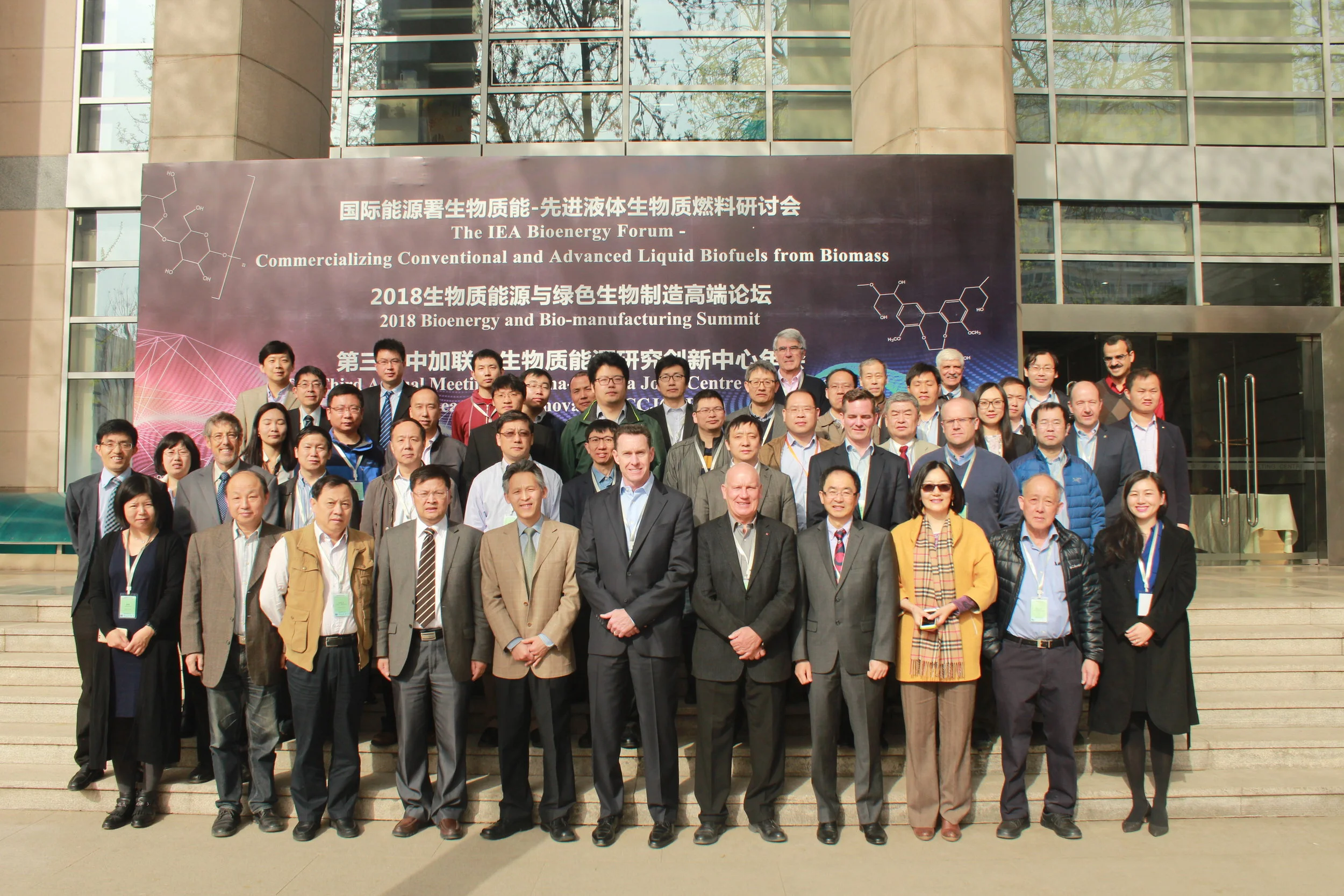




China-Canada BIOENERGY network
China-Canada BIOENERGY network
C-CBN (Previously China-Canada Bioenergy Centre, C-CBC) is jointly initiated and hosted by the University of British Columbia (UBC) in Canada and Beijing University of Chemical Technology (BUCT) in China. It is a platform to foster bioenergy technology development, maturation, demonstration and commercialization in both Canada and China through collaborations.
The Network was established in August 2015. It currently has 42 partner organizations including universities, research institutions, not-for-profit, and companies. And it has 80 faculty members.

News
News

Vision
Joint Research and Innovation - Bilateral Relationship
- Technology Translation and Trade
Vision
Joint Research and Innovation - Bilateral Relationship
- Technology Translation and Trade
Globally, we are facing an energy crisis. More than 80% of energy consumption comes from fossil fuels, which is damaging our environment and causing global warming. Canada and China have a shared set of imperatives around energy diversification and Greenhouse Gas reduction. Bioenergy, the use of agricultural and forest feedstocks for energy generation, is becoming a significant source of energy in both Canada and China. There exist great opportunities and challenges for Canada to create value-added bioenergy products to fit into China's non‐fossil fuel agenda.
Further research is still needed to improve efficiency and usage in bioenergy producing processes. C-CBN brings together top academics and industry partners in both countries to further bioenergy research, development, and translation.
Tackle scientific and engineering challenges
Strengthen bilateral relationship
Create trade opportunities

Directors
Directors
xiaotao tony bi
Professor,
Fellow of Canadian Academy of Engineering
Dr. Xiaotao (Tony) Bi is a Professor in the Department of Chemical and Biological Engineering at University of British Columbia (UBC). He is a registered Professional Engineer in Canada and a fellow of the Canadian Academy of Engineering. He currently serves as the Director of the UBC Clean Energy Research Centre (CERC), Director of the UBC Biorefining Research and Innovation Centre (BRIC), and the Manager of the UBC Fluidization Research Centre (FRC). He is also a member of several professional organizations in Canada.
He is a leading expert in the field of fluidization and multiphase reactor systems. He has outstanding achievements in the advancement of fluidization engineering, particularly flow regimes, choking, electrostatics, and dynamic signal interpretation. He has also made significant contributions to broad areas of engineering practice: thermochemical conversion of forest biomass residues, development of next generation torrefied wood pellets, life cycle analysis of biomass and bioenergy systems, and integration of biomass energy systems for greenhouse gas emission reduction and local air quality improvement.
He has published more than 300 peer‐reviewed papers in leading journals of chemical/environmental/energy engineering fields, which have been cited more than 12000 times with a current h‐index of 54. He also held patents on novel fluidized bed reactors for organic waste treatment, catalytic NOx reduction, and electrostatics monitoring. He has been participating in numerous interdisciplinary programs and international collaborative programs, held multiple visiting professorships in Chinese universities, appointed as a K.C. Wong Research Fellow by Chinese Academy of Sciences in 2003, won the UBC Killam Senior Faculty Research Fellowship in 2011, and won the AIChE Particle Technology Forum Lectureship Award in 2012.
tianwei tan
Professor,
Fellow of Chinese Academy of Engineering
Dr. Tianwei Tan has been the President of Beijing University of Chemical Technology (BUCT) since 2012. He is also a Professor in the College of Life Science and Technology at BUCT. He is a fellow of the Chinese Academy of Engineering, and a National Distinguished Teacher. He currently serves as the Associate Director of the Chemical Industry and Engineering Society of China and Executive Vice President of China Education Association of Chemical Industry.
Dr. Tan is a leading expert in the field of biochemical engineering. His research focuses on industrial enzyme catalysis and the development and utilization of bioenergy. He successfully industrialized the production of lipase for organic synthesis, developed new technology for large scale fermentation based on metabolite marker control, developed new technology for industrial utilization of fermentation waste mycelium, innovated methodology to extract ergosterol, chitosan and glucosamine from penicillium mycelium, and set up a 100-ton enzymatic bio-diesel production device which is the largest in both China and the world.
He has been the director of 14 projects under the National Key Technology R&D Program, the National High Technology Research and Development Program of China (863 Program), the National Basic Research Program (973 Program), and the National Natural Science Foundation of China. He has published over 200 SCI papers and 230 EI papers. He has won 2 Second Prizes of the National Award for Technological Invention, 5 First Prizes and 5 Second Prizes of the Ministry and Provincial Awards. In 2001, he was awarded the prestigious Yangzi River Outstanding Professorship by China Ministry of Education. In 2003, he received an Outstanding Young Scientist Award from National Science Foundation of China.













